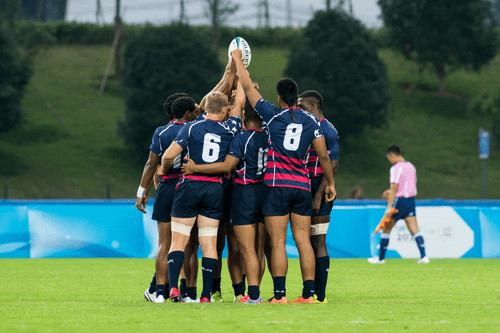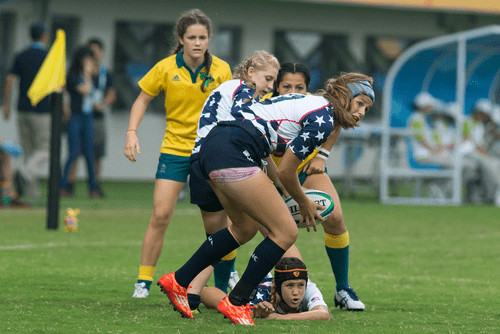- in Blog , Human Resources , Leadership , Management , Research by David Wilkinson
- |
- 1 comments
High performing teams – rugby players talk emotions

High performing teams – rugby players talk emotions
A quick guide to developing high performance teams.
One of the areas of research I have been involved in, in the last couple of years has been focussed on high performing teams and in particular how members of high performing teams regulate their own and others emotions. Our ability to recognise our own and others emotional state (emotional intelligence) and regulate our own emotions (emotional resilience) have been shown in a growing number of studies to be at the heart of an individuals ability to:
- make consistently good decisions and judgements,
- operate well with others and particularly in a team,
- get over emotional ‘hits’,
- deal positively with feedback and criticism,
- cope and even prosper in situations of uncertainty and ambiguity and
- cope and bounce back quickly with failure and mistakes for example.
The same is true of teams.
New research
A new study just published by a multinational team of researchers from seven universities in Canada, France and the UK has looked more closely at how and why high performing sports team members manage to regulate each others emotions. As I mentioned above the ability to be able to control your own emotions sits at the heart of good team work. This is especially the case in times of stress, like when things are going wrong and the team is losing, for example.
What happens when things go wrong
We have probably all witnessed a team collapsing when things go wrong. The ability to focus, continue to operate as a cohesive team and summon up the strength to up their game and win through in the face of failure is a real feat of emotional resilience / regulation. These are the very situations that really test a teams resilience and ability to regulate their collective emotions, refocus and improve performance.
Improving performance when you are losing or in difficulty is the trait of a great team.
Improving performance when you are losing or in difficulty is the trait of a great team.
Emotion regulation
The paper just published looks at how top rugby players engage in what is termed interpersonal emotion regulation. This is the ability to regulate their own individual emotions and help others to regulate their emotions as well.
What they found was the players in high performing teams engage in three types of regulatory activity:
- Self-regulation. This requires that the team member recognises where they are emotionally and the effect the emotion is having on their performance not just with the task but also their ability to operate as a productive team member. For example how they are responding to and initiating interactions with other team members.
- Co-regulation. This is where team members collude to give each other feedback on a reciprocal basis about their emotions and emotion regulation performance. Co-regulation involves communicating about their own emotional state and emotion regulation and getting involved in helping others with their emotion regulation.
- Extrinsic regulation. This is where a team member focuses on helping another regulate their emotions without involving their own.
All three types of regulatory activity were present in high performing teams. These are active, open and overt process with high performing teams both in training and during matches.
The researchers discovered that during matches all the players tended to engage with all three types of regulatory activity and that the team captain / team leader tends to focus on self and extrinsic emotion regulation activity during the match.
Additionally they found that a large part of the reasoning behind the motivation to engage in these ways was both altruistic (to help a team mate and help the team) and egotistical (in their own self-interest).
Open, overt and active
This is very much in line with the direction of other research about emotion regulation and high performing teams. This open, overt and very active emotion regulation process ‘in the moment is a growing focus of the top sports coaches. It enables teams to stay level headed, maintain morale and cohesion and make better decisions and judgements during a match and particularly when things get difficult. The moment many teams fall apart because they retreat into themselves and can’t regulate their emotions.
The link between high performance and having a coach
Something that I often wonder about is, why businesses and organisations don’t make more use of team coaches. I am often asked to talk about high performing teams and emotion regulation in organisations but getting many organisations to commit to having or at least trying a good team coach appears outside of their vision. Those that do however almost always reap the rewards. Instead for some reason they appear to limit themselves to ’team building’ which usually means reducing interpersonal conflict within the team, which in turn often means conflict suppression. This hardly ever, if ever, works. Suppressed conflict almost always bubble out.
Getting a team to be truly cohesive and resilient so they can bounce back quickly, (very quickly) is crucial. The measurement of resilience is the speed at which we bounce back after taking an emotional hit or suffering a failure.
Reference
Campo, M., Sanchez, X., Ferrand, C., Rosnet, E., Friesen, A., & Lane, A. M. (2016). Interpersonal emotion regulation in team sport: Mechanisms and reasons to regulate teammates’ emotions examined. International Journal of Sport and Exercise Psychology, 1-16.
T
Be impressively well informed

Get the very latest research intelligence briefings, video research briefings, infographics and more sent direct to you as they are published
Be the most impressively well-informed and up-to-date person around...




2undiscovered